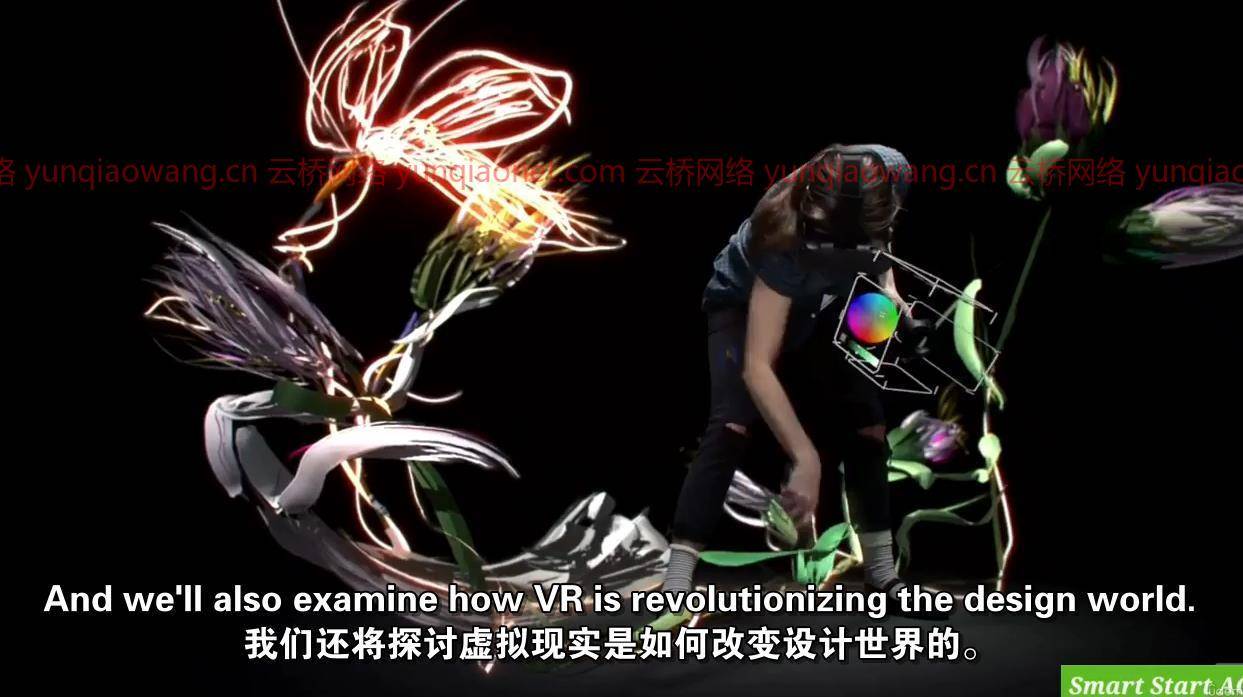
流派:电子学习| MP4 |视频:h264,1280×720 |音频:AAC,44.1 KHz
语言:英语+中英文字幕(云桥CG资源站 机译)|大小解压后:4.87 GB |时长:6h 15m
用这个6合1虚幻引擎课程包掌握增强现实/虚拟现实
你会学到什么
什么是虚拟现实?
虚拟现实的类型
在商业、电影制作、AEC等领域使用虚拟现实
开发虚拟现实内容
虚拟现实的未来
探索界面和工具
自定义虚幻界面
开始新的空白项目
封锁现场
导入内容
放置和操纵演员
优化网格
照亮一个场景
使用材料
添加交互性
添加后处理效果
添加树叶和粒子效果
创作电影
包装游戏以供分发
迁移材料包
批量更换材料
静态和动态照明
光照图分析、校正和填充
着色器分析和校正
绘制调用优化
改善反射
探索增强现实概念
安装虚幻引擎
在虚幻中设置项目
构建增强现实场景
将模型导入虚幻
向场景中添加元素
部署增强现实场景
运行应用程序
探索“调试”菜单
在虚幻中设置项目
命中测试
向场景添加对象
添加蓝图类
探索跟踪的几何元素
部署到安卓和iOS
在虚幻中设置项目
向场景中添加对象
添加蓝图类
比较游戏内和现实世界中的对象交互
向对象添加动画
测试并部署到安卓和iOS系统

描述
1-虚拟现实基础
第1 – 6节
虚拟现实已经存在了一段时间,但在建筑、工程和建筑(AEC)、制造和其他几十个行业中有许多新的用途,允许以创新的方式进行可视化和协作。包括3D扫描、无人机和摄影测量在内的新工具,以及对计算机辅助设计数据的访问,为企业领域的虚拟现实打开了大门。用于实时可视化的工具也变得更容易使用且更便宜。有了这些进步,几乎任何人都有可能利用虚拟现实技术来为看到、销售和交流信息创造创新的叙事。加入3D艺术家克莱格·巴尔,了解虚拟现实的概况:它是什么,在哪里使用,以及虚拟现实的未来会发生什么。此外,了解虚拟现实内容创建过程是如何工作的,以及在这个令人兴奋(且不断扩大)的领域开始工作需要了解什么。
涵盖的技能
预先化
原子能委员会
形象化
虚拟现实

2-UE的基本训练
第7 – 16节
虚幻不再仅仅是为了游戏。汽车设计、建筑、医疗保健和教育等行业正在采用实时开发工具来创建引人入胜的交互式视觉效果。虚幻引擎可以为这一切提供动力。在本课程中,西蒙·曼宁教授使用虚幻引擎4构建各种沉浸式用户体验所需的基本技能,包括照明、效果和视觉脚本。他涵盖了创建您的第一个项目,建立一个基础景观,封锁水平,并导入资产在设计中使用。想知道如何打造独特的外观吗?了解如何在虚幻中使用材质、后期处理效果和粒子系统。此外,了解如何优化项目的性能,并打包项目进行分发。
涵盖的技能
虚幻引擎
三维建模
三维可视化
3-虚幻引擎:ArchViz设计技术
第17 – 20节
想在虚幻引擎中更快更智能地工作吗?在本课程中,学习实用的架构可视化技术,这些技术可以帮助您使用虚幻引擎构建引人注目的体验。教员西蒙·曼宁分享了使用材质的技巧,包括如何在场景中获得逼真的镜子,并赋予玻璃材质反射率。他还探索了如何从虚幻中重新生成改进的光照贴图,以及如何减少绘制调用和多边形数量,测量项目性能等等。
涵盖的技能
虚幻引擎
三维可视化
4-UE:增强现实可视化01基本概念
第21 – 25节
通过Epic Games探索虚幻引擎,并通过一个真实世界的项目获得增强现实(AR)基础知识的概述。在本课程中,这是三部分系列的第一部分,讲师Emmanuel Henri介绍了增强现实的定义和AR项目的要求,并展示了如何设置和开始使用虚幻引擎。在展示如何将场景部署到iOS和Android之前,他演示了如何添加模型、灯光等。
涵盖的技能
虚幻引擎
移动应用开发
增强现实
5-虚幻:AR可视化02基本交互性
第26 – 30节
探索虚幻引擎,并通过一个真实世界的项目获得增强现实基础知识的概述。在本课程(三部分系列的第二部分)中,讲师Emmanuel Henri继续该项目,为AR游戏添加了更高级的功能和交互性。了解如何将3D对象添加到场景中,并使用点击测试来跟踪用户是否触摸了现实世界或游戏中的对象。此外,了解如何将您的场景部署到安卓和iOS上,以便与世界共享。
涵盖的技能
虚幻引擎
增强现实
三维可视化
6-不真实的AR可视化03复杂的交互性
第31 – 36节
通过Epic Games探索虚幻引擎,并通过一个真实世界的项目获得增强现实(AR)基础知识的概述。本课程是三部分系列的最后一部分,讲师Emmanuel Henri将采用您已经构建的功能,并展示如何添加更复杂的交互性和动画。回顾关键的命中测试概念,了解当用户触摸游戏中或现实世界的物体时会发生什么。然后发现如何用第三方包和工具(如Mixamo)制作对象动画,并在虚幻中使用交互蓝图。此外,了解如何将您的增强现实场景部署到安卓和iOS上,以便与世界共享。
涵盖的技能
手机游戏开发
增强现实
虚幻引擎4

Genre: eLearning | MP4 | Video: h264, 1280×720 | Audio: AAC, 44.1 KHz
Language: English | Size: 4.73 GB | Duration: 6h 15m
Master AR/VR with this 6 in 1 Unreal Engine course pack
What you’ll learn
What is virtual reality?
Types of virtual reality
Using virtual reality in business, filmmaking, AEC, and more
Developing VR content
The future of VR
Exploring the interface and tools
Customizing the Unreal interface
Starting a new blank project
Blocking out the scene
Importing content
Placing and manipulating actors
Optimizing meshes
Lighting a scene
Working with materials
Adding interactivity
Adding post-processing effects
Adding foliage and particle effects
Creating cinematics
Packaging a game for distribution
Migrating material packages
Batch replacing of materials
Static vs. dynamic lighting
Lightmap analysis, correction, and padding
Shader analysis and correction
Draw call optimization
Improving reflections
Exploring augmented reality (AR) concepts
Installing Unreal Engine
Setting up a project in Unreal
Building an AR scene
Importing models into Unreal
Adding elements into a scene
Deploying an AR scene
Running the application
Exploring the Debug menu
Setting up your project in Unreal
Hit testing
Adding objects to a scene
Adding blueprint classes
Exploring tracked geometry elements
Deploying to Android and iOS
Setting up your project in Unreal
Adding objects to your scene
Adding the blueprint class
Comparing in-game and real-world object interactions
Adding animation to objects
Testing and deploying to Android and iOS
Description
NOTICE:
When you enrol to this course, you are guaranteed to get one of our other premium courses for a discounted price of 10$. If you are ready notify us through the email provided in the Bonus Lecture at the end of the course!
1- Virtual Reality Foundations
Section 1 – 6
Virtual reality has been in existence for a while, but has many new uses in architecture, engineering, and construction (AEC), manufacturing, and dozens of other industries, allowing for innovative ways to visualize and collaborate. New tools including 3D scanning, drones, and photogrammetry, along with access to CAD data, have opened the door to VR in the enterprise space. Tools for real-time visualization have also become easier to use and less expensive. With these advances, it’s possible for almost anyone to leverage VR technology to create innovative narratives for seeing, selling, and communicating information. Join 3D artist Craig Barr for an overview of virtual reality: what it is, where it’s used, and what’s in store for the future of VR. Plus, learn how the VR content creation process works and what you need to know to get started in this exciting (and expanding) field.
Skills covered
Previsualization
AEC
Visualization
Virtual Reality (VR)
2- Unreal Essential Training
Section 7 – 16
Unreal isn’t just for gaming anymore. Industries such as automotive design, architecture, healthcare, and education are embracing the real-time development tools for creating engaging and interactive visuals. Unreal Engine can power it all. In this course, Simon Manning teaches the essential skills you need to build immersive user experiences of all kinds with Unreal Engine 4, including lighting, effects, and visual scripting. He covers creating your first project, building a base landscape, blocking out levels, and importing assets for use in the design. Want to find out how to craft a unique look? Learn about working with materials, post-processing effects, and particle systems in Unreal. Plus, find out how to optimize the performance for your projects and package projects for distribution.
Skills covered
Unreal Engine
3D Modeling
3D Visualization
3- Unreal Engine: ArchViz Design Techniques
Section 17 – 20
Want to work faster and smarter in Unreal Engine? In this course, pick up practical architectural visualization techniques that can help you build compelling experiences with Unreal Engine. Instructor Simon Manning shares tips for working with materials, including how to get realistic mirrors in your scene and give your glass materials reflectivity. He also explores how to regenerate improved lightmaps from within Unreal, as well as how to reduce draw calls and poly counts, measure project performance, and more.
Skills covered
Unreal Engine
3D Visualization
4- Unreal: AR Visualization 01 Basic Concepts
Section 21 – 25
Explore the Unreal Engine by Epic Games and get an overview of augmented reality (AR) basics by walking through a real-world project. In this course, the first in a three-part series, instructor Emmanuel Henri covers the definition of augmented reality and the requirements of an AR project, and shows how to set up and get started using the Unreal Engine. He demonstrates how to add models, lights, and more before showing how to deploy the scene to iOS and Android.
Skills covered
Unreal Engine
Mobile Application Development
Augmented Reality (AR)
5- Unreal: AR Visualization 02 Basic Interactivity
Section 26 – 30
Explore Unreal Engine and get an overview of augmented reality (AR) basics by walking through a real-world project. In this course, the second in a three-part series, instructor Emmanuel Henri continues the project, adding more advanced functionality and interactivity to the AR game. Learn how to add 3D objects to a scene and use hit testing to track whether a user touches real-world or in-game objects. Plus, learn how to deploy your scene to Android and iOS to share it with the world.
Skills covered
Unreal Engine
Augmented Reality (AR)
3D Visualization
6- Unreal AR Visualization 03 Complex Interactivity
Section 31 – 36
Explore the Unreal Engine by Epic Games, and get an overview of augmented reality (AR) basics by walking through a real-world project. In this course, the final installment of a three-part series, instructor Emmanuel Henri takes the functionality you have already built and shows how to add more complex interactivity and animations. Review crucial hit testing concepts and understand what happens when users touch in-game or real-world objects. Then discover how to animate objects with third-party packages and tools like Mixamo, and use interaction blueprints in Unreal. Plus, learn how to deploy your AR scene to Android and iOS to share it with the world.
Skills covered
Mobile Game Development
Augmented Reality (AR)
Unreal Engine 4
1、登录后,打赏30元成为VIP会员,全站资源免费获取!
2、资源默认为百度网盘链接,请用浏览器打开输入提取码不要有多余空格,如无法获取 请联系微信 yunqiaonet 补发。
3、分卷压缩包资源 需全部下载后解压第一个压缩包即可,下载过程不要强制中断 建议用winrar解压或360解压缩软件解压!
4、云桥CG资源站所发布资源仅供用户自学自用,用户需以学习为目的,按需下载,严禁批量采集搬运共享资源等行为,望知悉!!!
5、云桥CG资源站,感谢您的关注与支持!



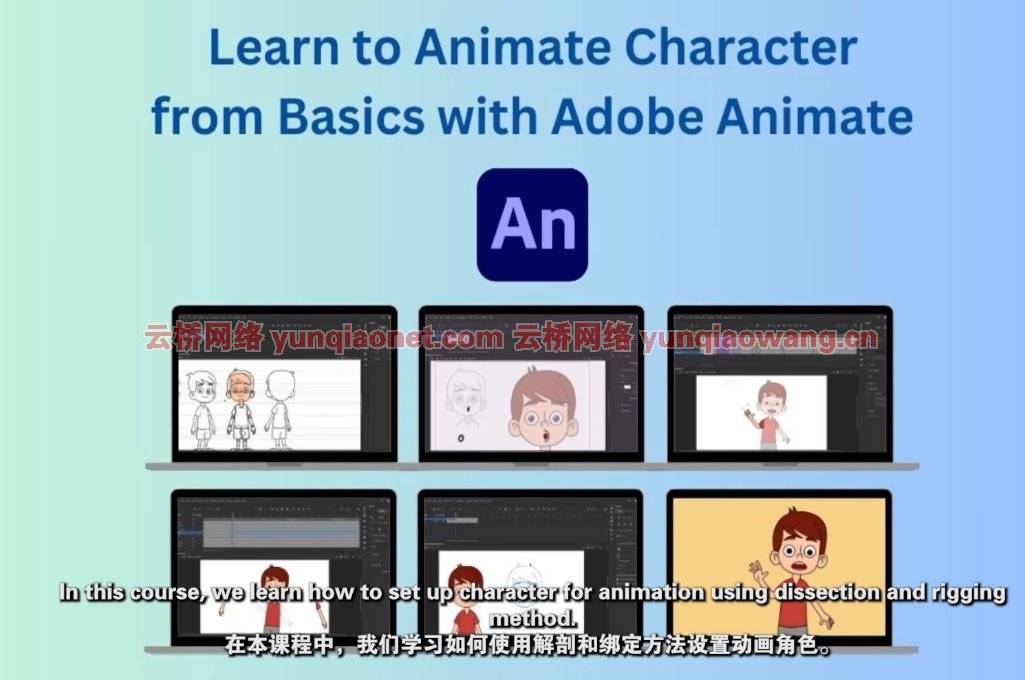
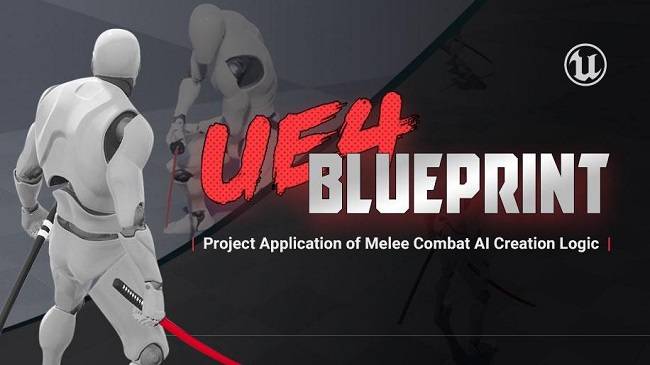
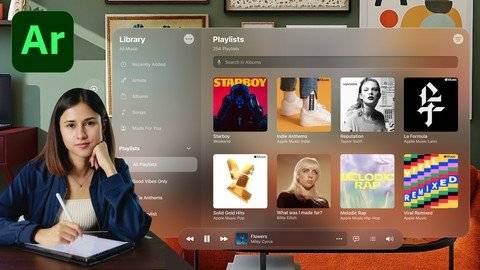

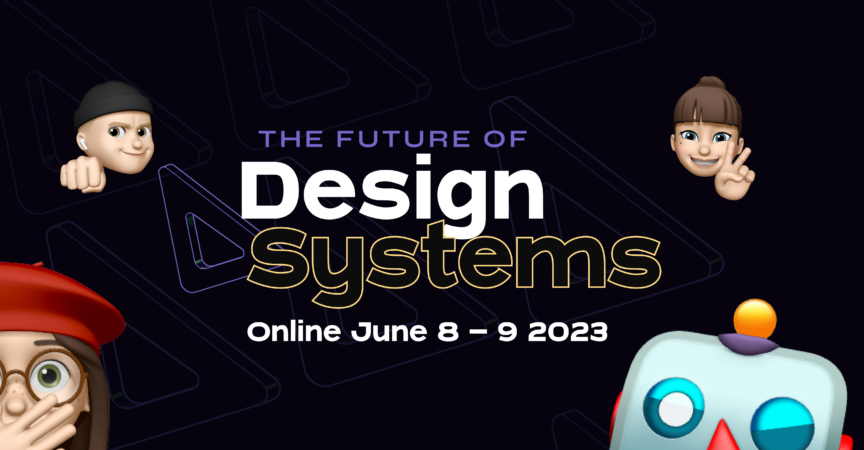
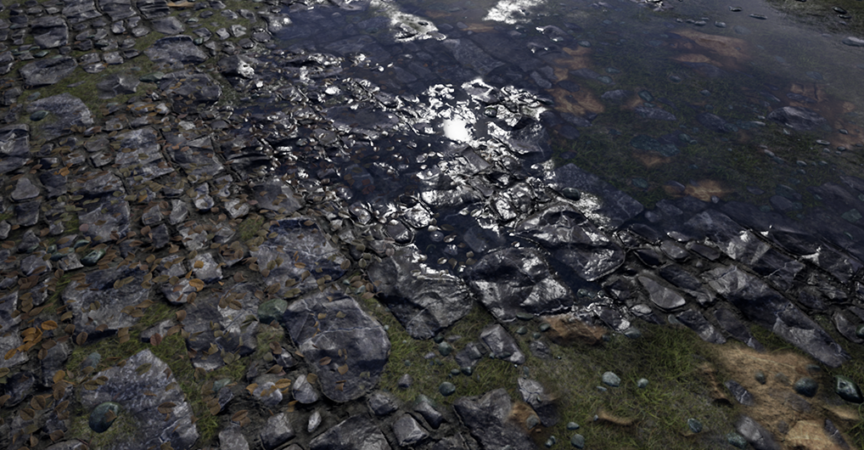
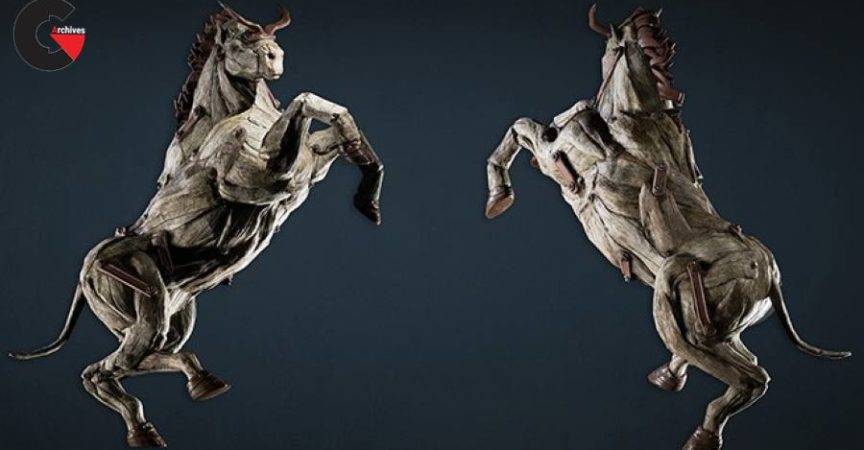
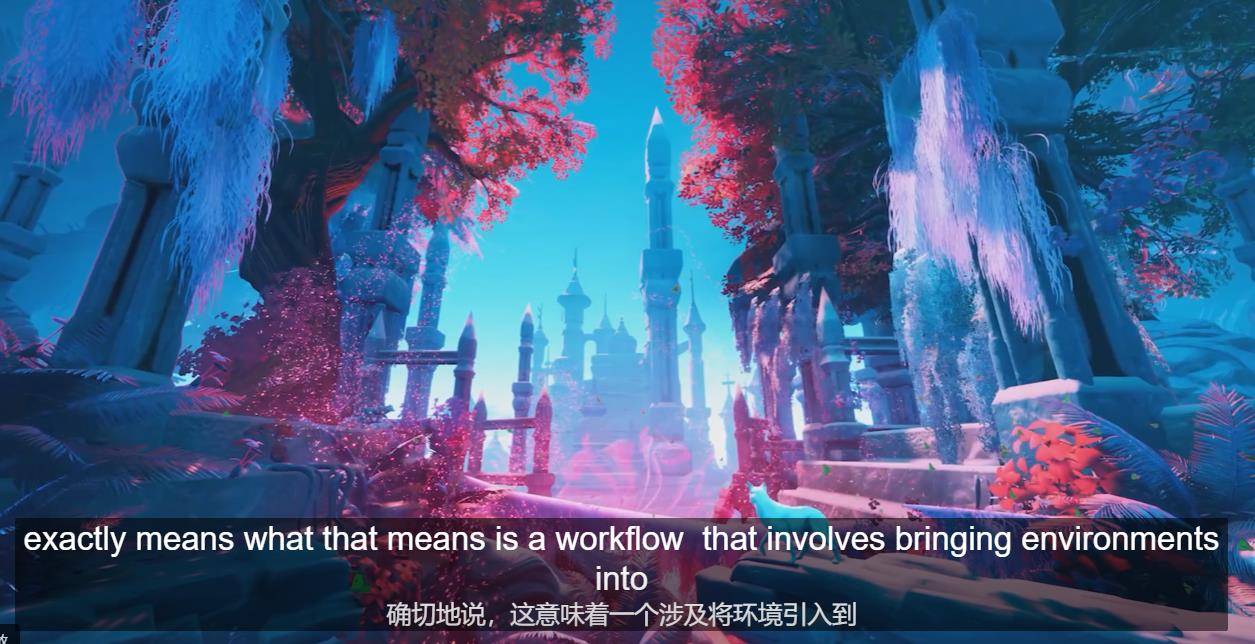
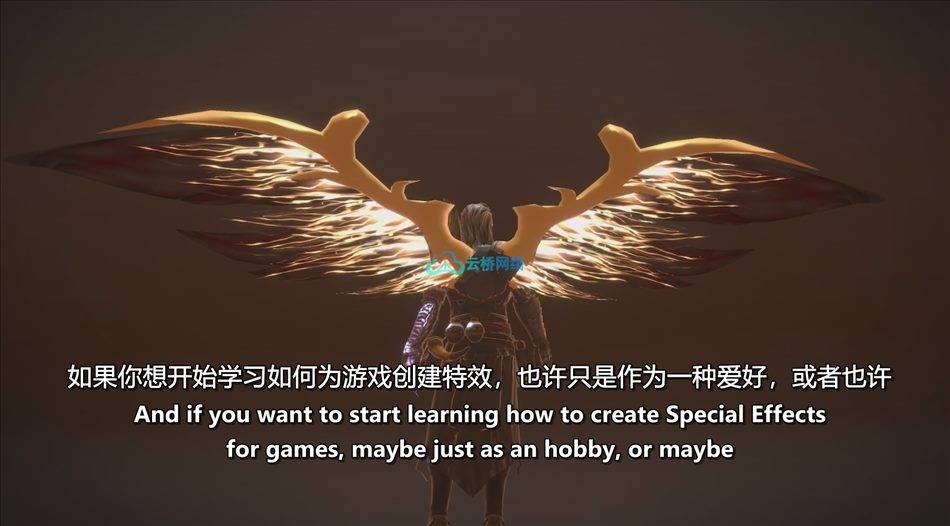
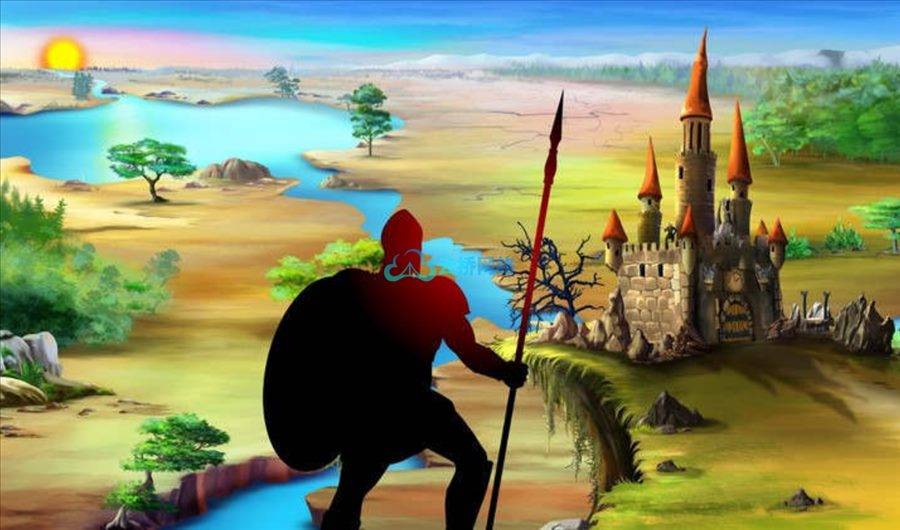
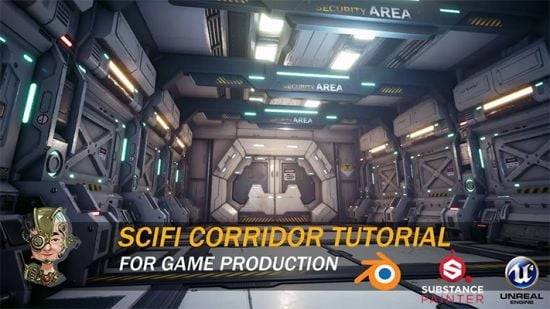
评论(16)
感谢分享
感谢分享
感谢分享!
谢谢分享
非常棒